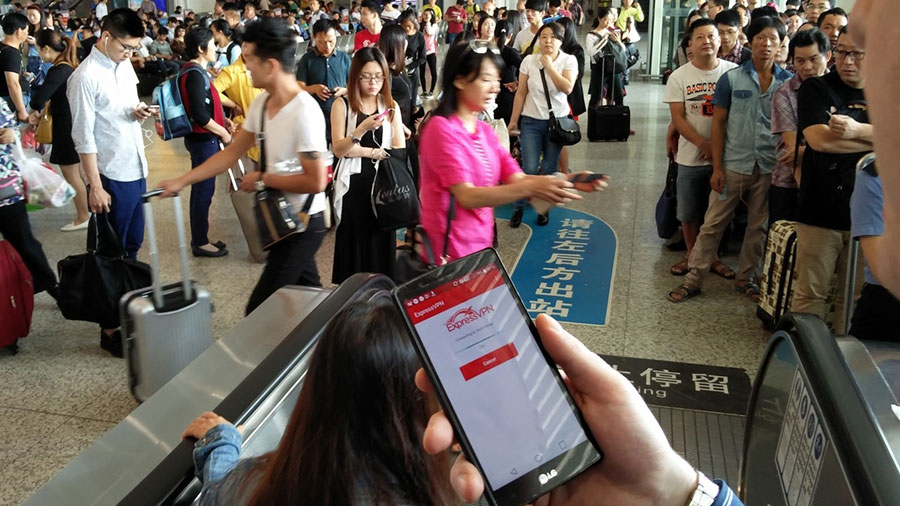China Ministry of Industry and Information Technology announced its campaign to ban VPNs as they are indicators of unsupervised internet activity.
VPNs are frequently used to access restricted websites and content, mainly because of a country’s control over the websites that its citizens use.

Known as the Great Firewall, the ministry will prolong its efforts for the restriction of the internet for 14 months to disable any VPN provider with access to the country. The only people authorized to use a VPN will be government officials and anyone with a license.
How a country dominates its internet access
It is not the first move that the Chinese government performs to have a firmer grasp on its internet service, seeing that it has forced app stores to register their products with the central government. While western mobile users are used to the app stores provided by Apple and Google, China has access to a much broader range of these digital marketplaces.
The government’s Cyberspace Administration is now keeping records on almost every app downloaded using the country’s internet service. Reportedly, some of these app stores offer products that are vulnerable or that supply “illegal information,” as the administration stated on its website.
China’s strict internet regulations have it so the access to popular websites with global acceptance such as Facebook, Google, and Twitter has been restricted.
Although the move may seem radical at first, anti-censorship organizations have suggested that the decision may not affect users as much as it would affect companies that provide the service.
According to the Washington Post, China is the leading country in internet commerce, achieving twice of the United States’ sales and harboring 40 percent of every transaction performed in the world. Internet access in China is controlled by the Communist Party, as it tries to install a balance of order and relative openness.
Currently, China blocks tens of thousands of websites that the party deems as harmful for its intentions. The U.S. has classified this Great Firewall as a barrier to commerce, seeing that China is one of the greatest trade hubs in the world.
Foreign companies have to face restrictions when they publish content in Chinese domains and web services also face strict regulations when it comes to the content they offer to their clients. An example would be iTunes Movies and iBooks, which were completely removed from the country’s web service shortly after launch.
Just seven months after the internet reached China, the party started blocking foreign websites, leading Wired magazine to coin the nickname of the Great Firewall back in 1997. One of the first controversies was the blocking of Google back in 2002, which was followed by blocking YouTube in 2008, and subsequently Facebook and Twitter in 2009.
“They are willing to tolerate a certain amount of porousness in the Great Firewall, as long as they feel that ultimately if they need to exert control, they can,” stated Jeremy Goldkorn, director of internet affairs to Danwei to the Washington Post.
To date, Chinese internet users relied on VPNs to access restricted content, but the latest decision by the Ministry of Industry and Information Technology shows that it is possible to control internet access on a nationwide basis, while also providing a decent degree of freedom of use.
Source: South China Morning Post

Frankly, I expected this to happen last year, so not so surprised. I hope vpn providers will find good solution for it as Traceless vpn did, because I think everybody should have right for internet freedom.